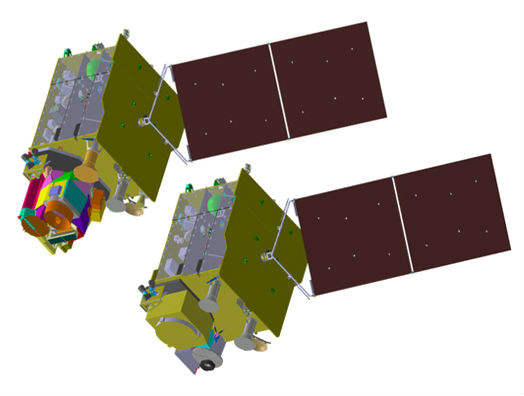Thales Alenia Space has sent South Korea the third of three panels making up the communications payloads on the two GEO-KOMPSAT-2 satellites being built by Korea Aerospace Research Institute (KARI). This last panel will be integrated in the GK2B satellite, and follows the two panels already delivered by the company at the end of last year for the GK2A satellite.
GEO-KOMPSAT-2 (Geostationary Earth Orbit Korea Multi-Purpose Satellite) is designed to provide meteorological, oceanographic and environmental data for both government bodies and private end-users. The programme comprises two satellites, GK2A and GK2B, each weighing around 3.5t, to be located at 128.2º East longitude in geostationary orbit. The two satellites are scheduled for launch in 2018 and 2019.
The GK2A satellite will carry out meteorological and space environment monitoring, using two main instruments: AMI (Advanced Meteorological Imager) and KSEM (Korean Space Environment Monitor). The GK2B satellite is designed to monitor oceans and the Earth’s environment, also using two dedicated instruments: GOCI-II (Geostationary Ocean Color Imager-II) and GEMS (Environmental Monitoring Spectrometer).
Thales Alenia Space integrated and tested three communication panels in its plant in Spain, two for GK2A and one for GK2B. These panels house the subsystems that transmit to Earth the raw data from the instruments, as well as a communications payload comprising two repeaters, used to retransmit processed data to end-users.
Thales Alenia Space and South Korea’s Qnion teamed up to develop radiofrequency (RF) filters as part of the COACH (Co-development for Advanced Channel Filters) programme, co-financed by CDTI (Spain’s Center for Industrial Technology Development) and KIAT (Korea Institute for Advancement of Technology). This programme, completed on 31st March 31, was instrumental in the development of several components and subassemblies used in the communications systems on GK2A and GK2B.

